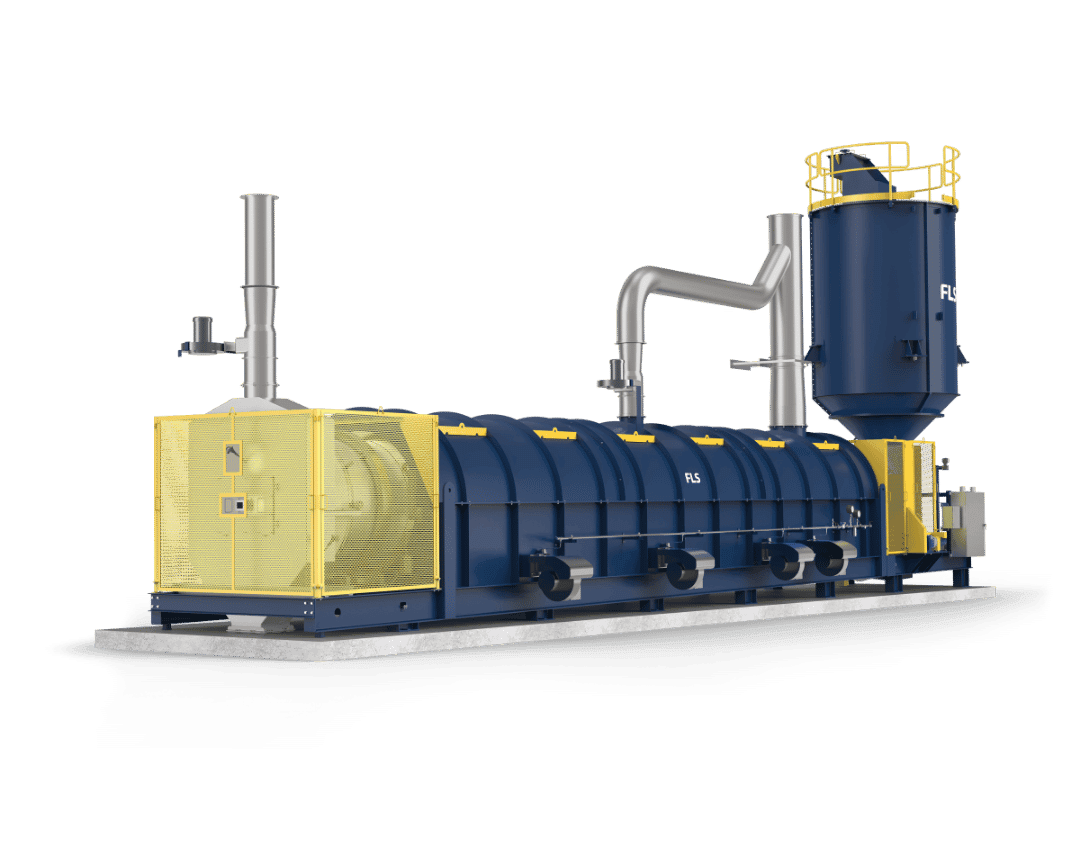Extend carbon life
Our simple, low-temperature carbon-regeneration process avoids overheating or damaging the carbon during regeneration cycles. The result is high-reactivated carbon activity with enduring carbon life.
Our simple, low-temperature carbon-regeneration process avoids overheating or damaging the carbon during regeneration cycles. The result is high-reactivated carbon activity with enduring carbon life.
Our process is simple and avoids overcomplicating the regeneration process with extra steps. For example, pre-drying of the carbon is not required; we use the entrained moisture to provide essential process steam. Taken together, it’s a cost-effective and efficient process that offers lowest overall lifecycle costs.
The low temperature and heat transfer rates employed in our process lead to low thermal stress on the kiln while slowing high-temperature corrosion. Oversized bearings, trunnions, and kiln tyres also increase dependability and promote long equipment life. In fact, our kilns often outlast the mine with only minimal maintenance requirements.
We all know the mining industry needs more skilled labour. This lack can make it hard to attract the people you need to run your mineral processing lab, especially when the mine is in a remote location. With their reduced for human involvement, automated laboratories negate that challenge, ensuring a reliable and accurate flow of sample data, regardless of staffing concerns.

Activated carbon is an effective – but expensive – concentrator of gold and silver owing to its high adsorption capacity in cyanide leach circuits. However, organic fouling of the carbon over time decreases the metal loading capacity of the carbon and results in precious metal loss. Our carbon regeneration kilns solve this problem by restoring the activity of fouled carbon, reducing the need to buy more carbon and lowering fouled carbon disposal costs. We offer throughputs of 0.5 to 20 tonnes per day, with custom larger kilns available on request, and various heating options (propane, natural gas, fuel oil, and electric).
Our aftermarket department offers reliable and timely supply of spares and wear parts, ensuring minimal downtime and optimal equipment performance. Our specialists are also readily available to provide ongoing operational support. Whether it’s technical advice, troubleshooting or circuit optimization, we work closely with mine site teams to ensure the longevity and efficiency of the equipment throughout its lifecycle. Additionally, we offer comprehensive support services, including circuit audits, preventive maintenance programs, training for mine operators and maintenance personnel, and detailed reporting on equipment performance. Our goal is to help maximise recovery, minimise downtime, and ensure the safe and efficient operation of your FLS systems and equipment.
FAQs for column flotation cells